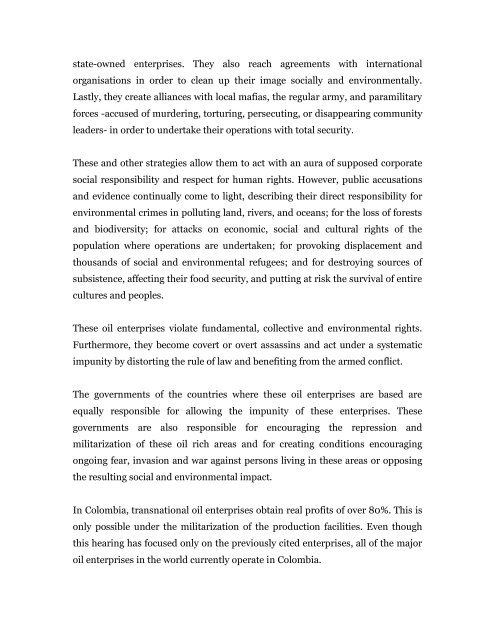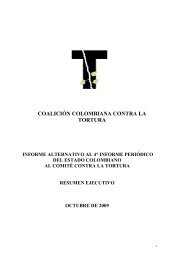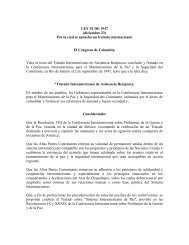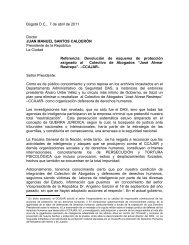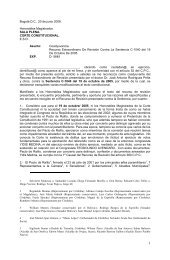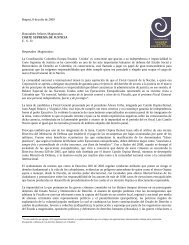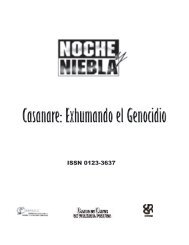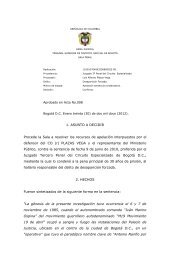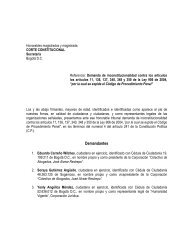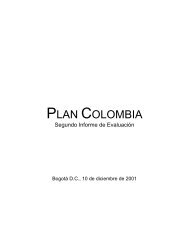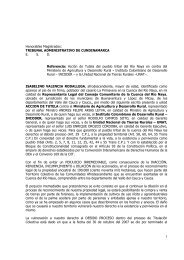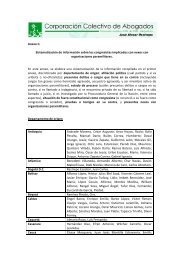PERMANENT PEOPLES' TRIBUNAL, SESSION ON COLOMBIA ...
PERMANENT PEOPLES' TRIBUNAL, SESSION ON COLOMBIA ...
PERMANENT PEOPLES' TRIBUNAL, SESSION ON COLOMBIA ...
You also want an ePaper? Increase the reach of your titles
YUMPU automatically turns print PDFs into web optimized ePapers that Google loves.
state-owned enterprises. They also reach agreements with international<br />
organisations in order to clean up their image socially and environmentally.<br />
Lastly, they create alliances with local mafias, the regular army, and paramilitary<br />
forces -accused of murdering, torturing, persecuting, or disappearing community<br />
leaders- in order to undertake their operations with total security.<br />
These and other strategies allow them to act with an aura of supposed corporate<br />
social responsibility and respect for human rights. However, public accusations<br />
and evidence continually come to light, describing their direct responsibility for<br />
environmental crimes in polluting land, rivers, and oceans; for the loss of forests<br />
and biodiversity; for attacks on economic, social and cultural rights of the<br />
population where operations are undertaken; for provoking displacement and<br />
thousands of social and environmental refugees; and for destroying sources of<br />
subsistence, affecting their food security, and putting at risk the survival of entire<br />
cultures and peoples.<br />
These oil enterprises violate fundamental, collective and environmental rights.<br />
Furthermore, they become covert or overt assassins and act under a systematic<br />
impunity by distorting the rule of law and benefiting from the armed conflict.<br />
The governments of the countries where these oil enterprises are based are<br />
equally responsible for allowing the impunity of these enterprises. These<br />
governments are also responsible for encouraging the repression and<br />
militarization of these oil rich areas and for creating conditions encouraging<br />
ongoing fear, invasion and war against persons living in these areas or opposing<br />
the resulting social and environmental impact.<br />
In Colombia, transnational oil enterprises obtain real profits of over 80%. This is<br />
only possible under the militarization of the production facilities. Even though<br />
this hearing has focused only on the previously cited enterprises, all of the major<br />
oil enterprises in the world currently operate in Colombia.


